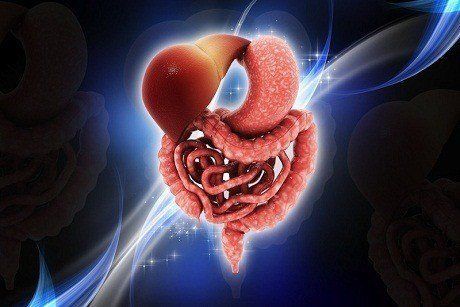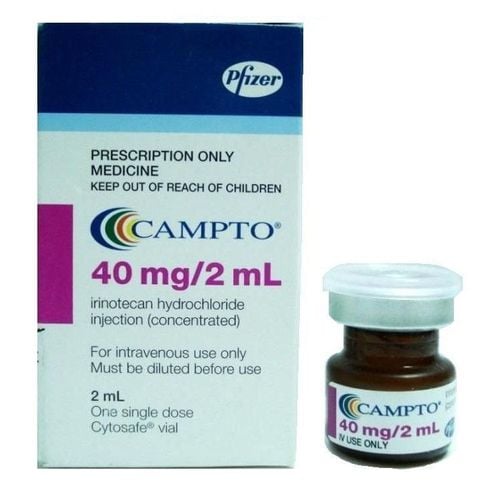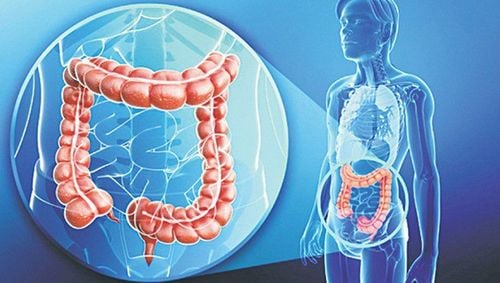This is an automatically translated article.
Treatment for colon cancer raises many concerns for doctors about the things that the method itself brings such as side effects, self-care and most importantly, patient's life expectancy. For patients with stage II colon cancer, there is often an additional concern whether chemotherapy after surgery is beneficial.
1. Treatment of stage II colon cancer
For stage I colon cancer, surgical removal of the tumor is the only possible treatment. Stage III tumors are those that have spread to the lymph nodes and are treated with surgery, followed by chemotherapy. This method is also known as adjuvant chemotherapy performed, after surgery to reduce the risk of cancer recurrence. This has been shown to improve patient survival.
Meanwhile, stage II disease falls in the middle. An estimated 75% of people with stage II colon cancer will be cancer free after 5 years without adjuvant chemotherapy, but the remaining 25% will not. Some of these patients may benefit from chemotherapy after surgery.
2. Stages of colon cancer
A tumor is staged using the "TNM" system. This is a combination of three criteria, which include: Tumor size or depth (T), presence of cancer in the lymphocytes (N), and presence or absence of metastasis (M). ) . Stage II colon cancer includes tumors with the designation T3N0M0 or T4N0M0 with the following characteristics:
T3 tumors that invade through the stroma (outer layer of the colon) and into the perirectal tissues ( tissue surrounding the colon). T4 tumors extend through the colon wall and attach to or invade nearby structures or organs. N0 (N zero) means no cancer cells were found in the lymph nodes. M0 (M zero) means no metastases (No spread to other organs). Although stage II tumors are grouped together, there are some tumors that seem to recur after treatment and require adjuvant chemotherapy. There are certain features of the tumor that increase the chance of the cancer coming back, so you should discuss with your doctor the risks and benefits of adding chemotherapy after surgery. Studies have found only small improvements in survival of about 2 to 5 percent with the addition of chemotherapy in stage II disease. This needs to be weighed against the possible side effects of chemotherapy treatment.
3. Some risk of cancer recurrence
A tumor has some of the following characteristics that make it more likely that the cancer will come back:
A T4 tumor - At this size it has broken through the colon wall and into nearby tissues. If there is bowel perforation or obstruction at the time of diagnosis. Grade 3 tumors - these appear very abnormal under the microscope. Vascular and dural invasion - If the pathologist sees tumor cells in the small-vessel lymphatic system and nerves surrounding the tumor, that will be evident in the pathology results. Less than 12 lymph nodes have been examined by a pathologist. The above risk factors are generally accepted as putting patients at higher risk of recurrence and the use of adjuvant chemotherapy should be discussed. There are a number of other factors that affect risk and play a role in whether or not chemotherapy is recommended including:
Before surgery for colon cancer, the patient will have a blood test to look for CEA (Antibiotics). carcinoembryonic origin). This is a substance produced by cancer cells, also known as a tumor marker. If this index is elevated (CEA > 5 ng/ml) before surgery will be considered to have a higher risk of recurrence. After surgery, CEA should return to normal levels. This index will be monitored for many months or years after treatment to prevent recurrence. Microsatellite instability (MSI) is classified as either high (H) or low (L). Tumors with MSI-H status are thought to be less aggressive and may not benefit from the addition of chemotherapy.
4. Genome Profile
Genome profiling will use gene markers. This is an analysis of the expression levels of a group of genes in tumor tissue and is then used to predict outcomes.
The genes under consideration are mutated genes that are part of the tumor, not genes inherited from your parents. Genetics helps to study genes that are inherited and passed on from generation to generation. These genes are responsible for many traits, including hair and eye color. Increased risk of certain diseases can also be passed down through genes. BRCA1 and BRCA2 are two breast cancer genes, and women with abnormal carriers of these genes have a higher risk of developing breast cancer. The science used in profiling genomes is called genomics. This type of test looks at the genes that make up the tumor and evaluates their activity.
Several companies have come up with a table of tumor genes that can predict the likelihood of a tumor returning after surgery. However, the tests have not been shown to predict which tumors will be affected by chemotherapy. Some suggested tests include:
Colon cancer test Oncotype DX : This test looks at 12 genes to predict the risk of recurrence. The sample is designated as low, medium, or high risk. ColoPrint: This test looks at 18 genes and indicates whether the tumor has a high or low risk of recurrence. GeneFx: This test looks at 482 genes and indicates whether the tumor is low or high risk. In summary, people with stage II colon cancer will be cancer free after 5 years without adjuvant chemotherapy, but the remaining 25% will not. Some of these patients may benefit from chemotherapy after surgery.
Please dial HOTLINE for more information or register for an appointment HERE. Download MyVinmec app to make appointments faster and to manage your bookings easily.
Reference source:oncolink.com












